Ran Out by Shlomit Bauman
Israeli ceramics designer Shlomit Bauman combined white porcelain with the very last batch of clay from a local pit to make these stretched and distorted objects (+ slideshow).
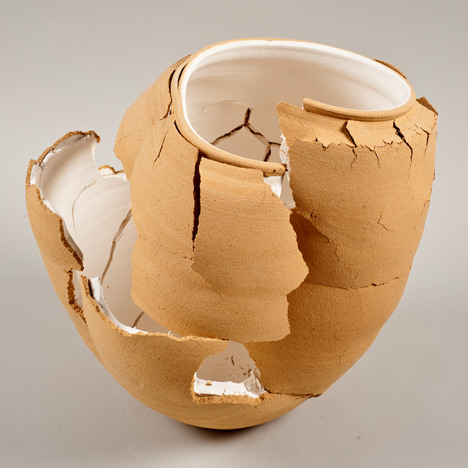
The objects in the Ran Out collection combine porcelain with a type of Israeli terracotta that has almost been used up completely.
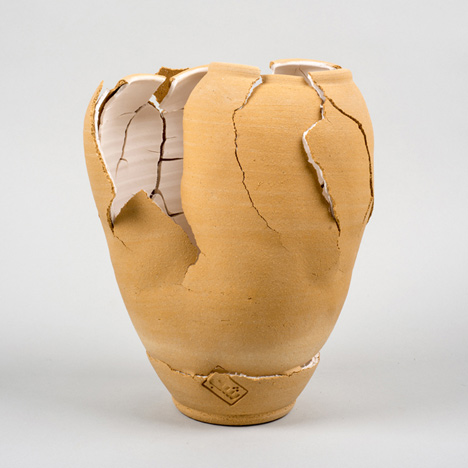
"The local authorities realised that mining this clay would cause it to become completely extinct, so they closed the mine," Shlomit Bauman told Dezeen. "I bought that last ton of clay from the suppliers."
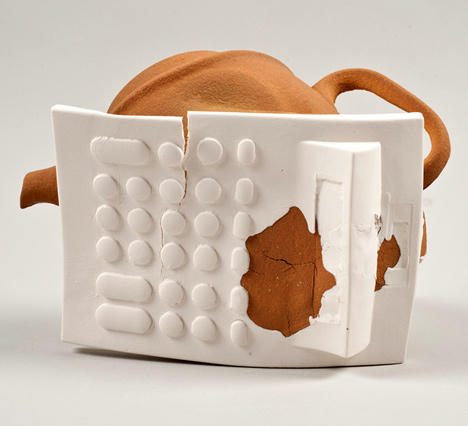
Bauman turned a variety of everyday objects into moulds, including a mobile phone, a television and a megaphone.
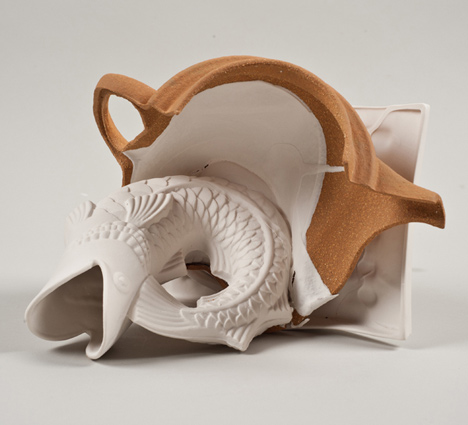
Two of the moulds – a teapot and a fish – were salvaged from a ceramics factory in Tel Aviv that had closed down in the 1990s.
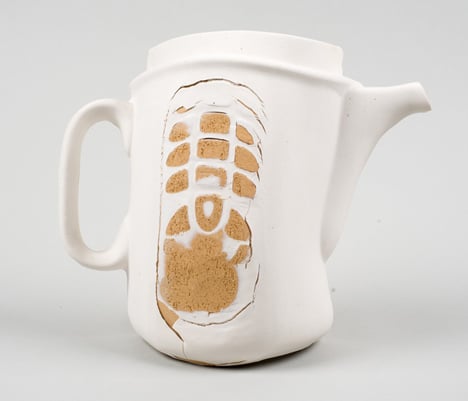
Bauman then combined the moulds by casting them one on top of the other or by attaching them after casting. "The broken appearance is a result of the different shrinkage characteristics of the materials," she explained. "But for me, it symbolises the distortion of the process of trying to mix two different cultures together."
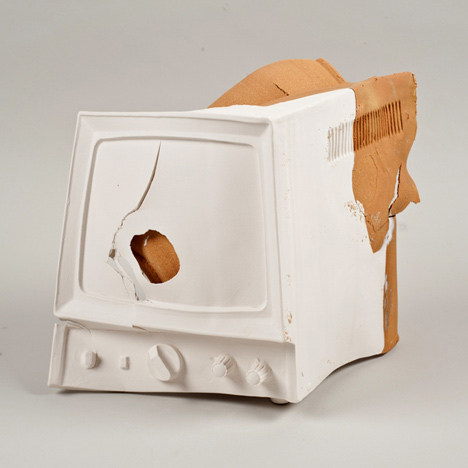
Bauman teaches ceramic design at Holon Institute of Technology in Israel.
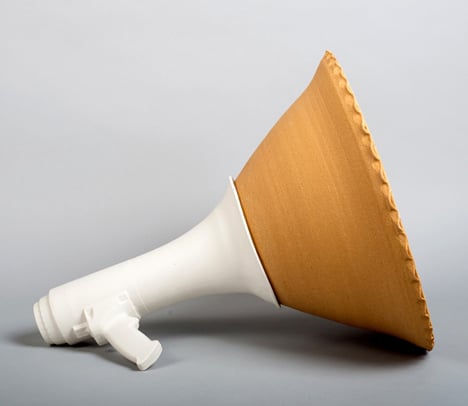
Other similar designs we've featured include a set of crockery made from roughly carved moulds and a project to make tableware from muddy clay found on the banks of the River Thames – see all ceramics.
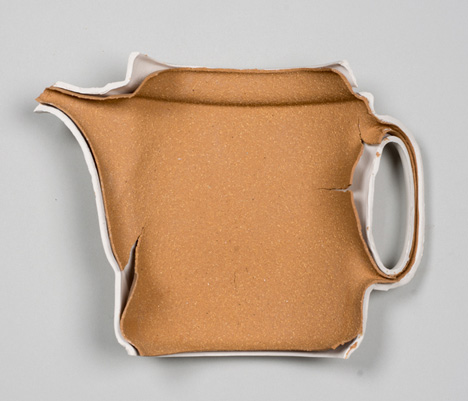
Photographs are by Ilan Amihai.
Here's some more information from the designer:
Ran Out is a ceramic design project that raises a discussion concerning the extinction of natural resources, of conception or objects that are running out. The project brings together local clay - a ceramic material that ran out in Israel and abroad (S5), and porcelain - the fashionable and noblest ceramic material. This project makes use of historical molds and materials from closed Israeli ceramic factories.
The different characteristics of these materials in cultural, technological and formal terms result in contrast, cracking and distortion of objects. This creates a tension between the desire for likeness and connection, and the exposure of the differences and the distorted. These works deal with the loaded field of the extinction of natural, cultural and personal resources.
Shlomit Bauman is an Israeli ceramic designer that relates to the ceramic design field as a “cultural research lab” by dealing with cultural, technological and traditional aspects. Along her work she explores the methods and strategies of action in the wide context of material culture. Her creative activity covers many fields that include design, art, education and curation as a way of life.